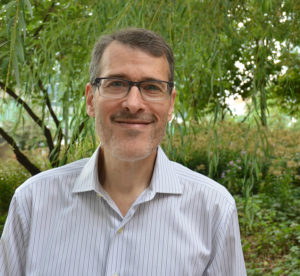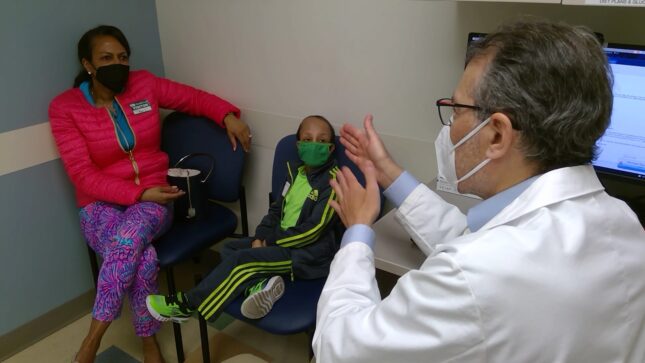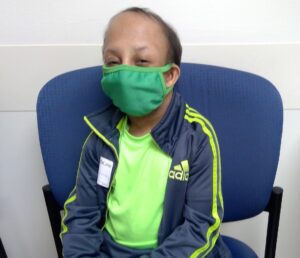
For a young patient with chronic kidney disease, the transition from pediatric to adult renal care systems can be difficult and challenging. Michael Rauchman, MD, Chromalloy Professor of Medicine, Division of Nephrology, is helping make that passage as smooth as possible through his Pediatric-to-Adult Nephrology Transition Clinic at Barnes-Jewish Hospital.
The goal of the clinic, which meets once a month, is to help guide young adults in the management of their own health care.
“This is for kids with kidney disease who reach the age of 18 and are ready to transition to adult medicine,” says Rauchman. “The transition causes anxiety for the families, so we have tried to work out a system to make the transition less traumatic.” To achieve this, Rauchman works closely with the Division of Pediatric Nephrology at St. Louis Children’s Hospital (SLCH), since many of the patients have been treated there for their kidney disease for extended periods of time. “I go to meet the patient and family at a Children’s Hospital clinic visit before they come to the Center for Advanced Medicine.”
“Dr. Rauchman made our transition from a pediatric nephrologist to an adult nephrologist easy and reassuring,” says Leslie Powers, mother of Michael Powers, a young adult kidney patient who now routinely sees Rauchman in the clinic. “Michael had such a good pediatric nephrologist, Dr. Carmen Halabi at SLCH, that it was difficult to imagine anyone could take her place. When we first met Dr. Rauchman during a transition appointment, I knew we would be in good hands.”

Mrs. Powers noted that Dr. Rauchman was very interested in taking on Michael as a patient and was not nervous about taking on a patient with a very rare genetic disorder. “Michael was smiling and at ease, and I was impressed by the research he had done on transitioning young adults with genetic disorders involving the kidneys,” she says.
Michael has osteodysplastic primordial dwarfism. Because of Michaels small size, Drs. Rauchman and Halabi assured Mrs. Powers that if Michael were ever in need of a renal procedure in the future, that he would be welcomed at Children’s Hospital where the operating rooms, equipment and tools were made for smaller patients.

“Children with chronic conditions and, even more so, their parents are very anxious about the transition to adult care,” says Dr. Halabi. “One of the questions on the parents’ mind when their child turns 18 or is a senior in high school is ‘when are you kicking us out?’” Halabi maintains that Rauchman’s initial visit at SLCH during the last pediatric visit puts both the patients and their families at ease. “It indicates to the families that the adult and pediatric providers know each other and communicate and that their child is not being thrown into the unknown, which helps build trust. This transition clinic has been invaluable to young adult patients with chronic kidney disease and their families.”
Mrs. Powers agrees. “I now feel that we have made the right choice in Dr. Rauchman and his staff and their interest in providing the best care possible for Michael. I would highly recommend him to any young adult who is making the transition to an adult nephrology doctor.”
For more information on the Pediatric-to-Adult Nephrology Transition Clinic, please read the feature article “Optimizing Transitions to Adult Kidney Care” in our Spring 2022 Nephrology Update Newsletter.
In addition to his clinical work, Rauchman is a renowned physician-scientist, with congenital diseases among his research focus. Read more about his work and accomplishments here.
Please visit @carmen_halabi and @WUNephorlogy on Twitter and “Like” us on Facebook.